14 Examples of Strong Brand Positioning and Why They Work
Differentiating your brand from its competitors is key to success. You want consumers to identify with and connect to your company, which starts with ensuring that your brand embodies the qualities and values most important to you. This concept is known as brand positioning.
What is Brand Positioning?
Brand positioning serves as the North Star in the vast universe of your industry, providing direction for your brand's journey. It helps to distinguish your brand in the crowded marketplace, etching a unique identity in the minds of potential customers.
Your company's positioning is key to helping consumers understand why they should pick your brand over others. The essence of brand positioning lies in its ability to connect with customers on a deeper level, shaping their perception, driving loyalty, and influencing their buying behavior.
This process carefully threads together various brand attributes, including your tone, visual imagery, and messaging both in person and on on social media, all of which align with your brand's ethos and resonate with your intended audience.
What are the different types of brand positioning?
- Value-based Positioning: Emphasizing the cost-effectiveness or superior value of your product or service.
- Quality-based Positioning: Highlighting the superior quality, craftsmanship, or performance of your product or service.
- Benefit Positioning: Focusing on the unique benefits that consumers can only gain from your product or service.
- Problem/Solution Positioning: Addressing a specific problem your target audience faces and positioning your product as the solution.
- Competitor-based Positioning: Differentiating your brand from a competitor based on factors like product features, customer service, or pricing.
What is the differentiation strategy?
The differentiation strategy is a positioning strategy that relies on highlighting the unique or innovative qualities of a product in comparison to its traditional competition. By offering distinctive features or attributes, a company can create a competitive advantage and attract consumers who value innovation.
For example, Tesla exemplifies a successful differentiation strategy. Before Tesla vehicles were introduced, there was a lack of attractive, fully electric cars available for purchase. However, Tesla differentiated itself by pioneering self-driving cars and AI robots, making it a leading tech company in the automotive industry.
Implementing a differentiation strategy involves showcasing the novelty and distinctiveness of the product to appeal to consumers interested in cutting-edge technology. However, one potential limitation of this strategy is that consumers may be hesitant due to the lack of a proven track record or historical use. To overcome this, it's important for companies introducing completely new products to provide ample research and testing data to demonstrate both the effectiveness and reliability of their innovations.
What is the quality-based positioning strategy?
The quality-based positioning strategy is a marketing approach employed by companies to highlight the superior quality of their products or services, which often come with a higher price tag. This strategy aims to showcase exceptional craftsmanship, the use of high-quality materials, small-batch production, and even sustainable practices that contribute to the higher cost of production.
By emphasizing the quality of their offerings, companies can differentiate themselves from competitors and appeal to customers who value and are willing to pay for superior quality. This strategy also relies on providing evidence of exceptional end results, a high return on investment (ROI), and positive customer testimonials to reinforce the brand's commitment to quality.
However, it is important to consider the purchasing habits and income levels of target customers when implementing this strategy. While some customers may prioritize quality, others might be more budget-conscious and opt for more affordable alternatives. It is crucial to understand buyer personas and assess whether emphasizing quality and the associated premium pricing aligns with the preferences and willingness to pay of the target market.
What is the price-based positioning strategy?
The price-based positioning strategy is a marketing approach where a company positions its product or service as the most affordable option available in the market. By highlighting the low price of the offering, the company aims to attract a large customer base, as customers generally prefer to spend less money. This strategy is effective in enticing prospects to make a purchase, as lower prices can be a strong incentive for conversion.
However, implementing a price-based positioning strategy comes with certain risks and drawbacks:
One potential drawback is the perception of lower production quality that may arise from positioning the product solely based on its low price. Customers may associate lower prices with inferior products or services, which can negatively impact the brand's reputation and long-term positioning.
Moreover, economic factors can also pose challenges to maintaining a price-based positioning strategy:
- For instance, if there is inflation or an increase in production costs, it may become difficult for the company to sustain the low prices initially offered. This can result in a disconnect between the company's positioning and the actual pricing, leading to confusion among customers and potential loss of trust.
- Another potential risk associated with price-based positioning is the initiation of a price war, especially in industries that are more susceptible to such competition, such as the air travel industry. Price wars can be detrimental to profitability and sustainability, as companies may engage in continuously lowering prices to attract customers, ultimately eroding profit margins.
What is a brand essence chart and how can it help organize ideas?
A brand essence chart is a powerful tool that helps organize and clarify the key ideas and concepts underlying a brand. It's designed to provide a clear and concise overview of what the brand represents to its customers. By breaking down the brand essence into several components, the chart serves as a framework for understanding and conveying the brand's unique attributes, benefits, personality, source of authority and support, implications for the customer, emotional impact, and positioning.
The seven components of a brand essence chart are as follows:
- Attributes: These are the distinct features and characteristics of the brand. They can range from physical aspects in the case of tangible products, or more intangible qualities for SaaS or technology products.
- Benefits: This component focuses on what customers gain or experience as a direct result of using the brand's product or service. It highlights the advantages and value that customers receive.
- Personality: Described through a set of adjectives, the personality of the brand defines its unique character and sets it apart from competitors, capturing the brand's tone, voice, and overall vibe.
- Source of Authority and Support: This component establishes the foundation of the brand's credibility and expertise. It encompasses factors such as the brand's heritage, industry recognition, awards, customer testimonials, or scientific research.
- Implications for the Customer: Building upon the previous elements, this section delves into what the brand signifies about its ideal customers. It explores how the brand aligns with their values, needs, desires, and aspirations.
- Emotional Impact: This component explores the emotional response or connection that the brand evokes in its customers, aiming to identify and articulate the specific feelings and emotions that arise when customers interact with the brand.
- Positioning/Brand Essence: The final step is to weave together all the elements and distill them into a concise statement that encapsulates the key takeaways for customers. This statement goes beyond a formal positioning statement by delivering a cohesive and impactful brand essence.
By employing a brand essence chart, you can bring clarity and structure to their brand development process. It provides a visual representation that helps stakeholders understand and communicate the brand's unique value proposition, guiding both copywriting and design inspiration.
How do you write a brand positioning statement?
A brand positioning statement is a concise and compelling declaration that aligns with your target audience's needs and differentiates you from your competitors. To write a brand positioning statement, identify your target audience, highlight your unique differentiation, demonstrate your value proposition, and establish your proof points. Then, combine these elements into a succinct statement.
Here is a basic formula for creating a powerful brand positioning statement:
-
Target Audience: Who is your target customer?
-
Differentiation: What makes your brand unique? What's your Unique Selling Proposition (USP)?
-
Value Proposition: What value does your brand provide to the target audience?
-
Proof Point: What evidence supports your differentiation and value proposition?
Combining these elements, we get the positioning formula:
"For [Target Audience], [Brand Name] is the only [Your Market] that [Differentiation] because [Proof Point]."
This statement succinctly communicates the essence of your brand, offering a clear picture of who you are, who you serve, and what sets you apart in your industry. It should guide your marketing efforts and ensure consistency across all communication channels.
How should you approach brand positioning using a top-down approach?
Brand positioning can be approached using a top-down approach, starting with the big idea. Begin by defining the core message or concept that differentiates your brand. Then, build the other components of the brand positioning framework, such as the value proposition, target audience, mission statement, tone of voice, elevator pitch, message pillars, and sample touchpoints. By starting with the big idea and working downward, you ensure that all elements align with and support your brand's central positioning.
How do you measure brand positioning success?
Brand positioning success can be measured through various methods, including brand awareness surveys, market share analysis, and customer feedback. Regularly assessing these metrics allows you to evaluate your brand positioning's effectiveness and make necessary adjustments.
Brand positioning is one of the few areas you can entirely control in your business — and it's highly impactful. Here are examples of prominent, influential brands and their positioning to show you what we mean.
1. Tesla: Electric Cars, Solar & Clean Energy
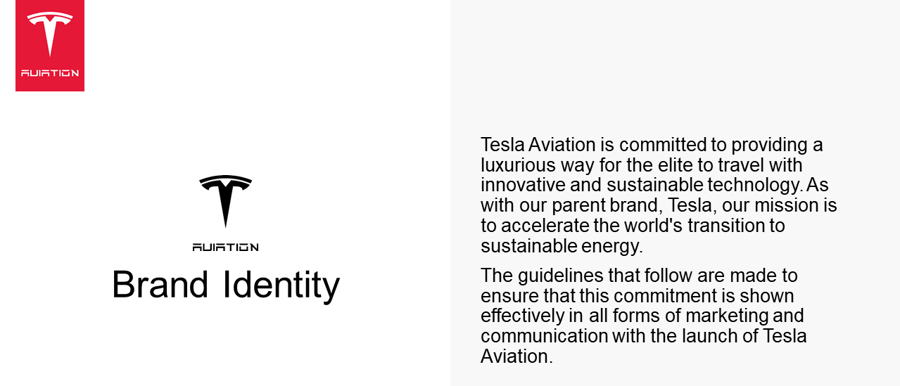
While many consumers think of Tesla as an automaker, the brand increasingly positions itself as a high-performance energy company with a futuristic outlook. This strategy echoes in every touchpoint they offer (including their marketing), allowing the brand to occupy a “premium” position in each market they enter — with corresponding premium pricing models.
The company’s mission is to “accelerate the world’s transition to sustainable energy,” with values emphasizing environmental benefit, safety, and simply having fun — Tesla’s goal is to make every vehicle as enjoyable as possible, with features like gaming systems and easter eggs.
How to Apply Tesla's Strategy to Your Brand:
To emulate Tesla, you must position your brand as a forward-thinking pioneer in your industry. Your mission should resonate with prevailing societal values and reflect in every brand interaction.
2. Apple: (FKA) Think Different
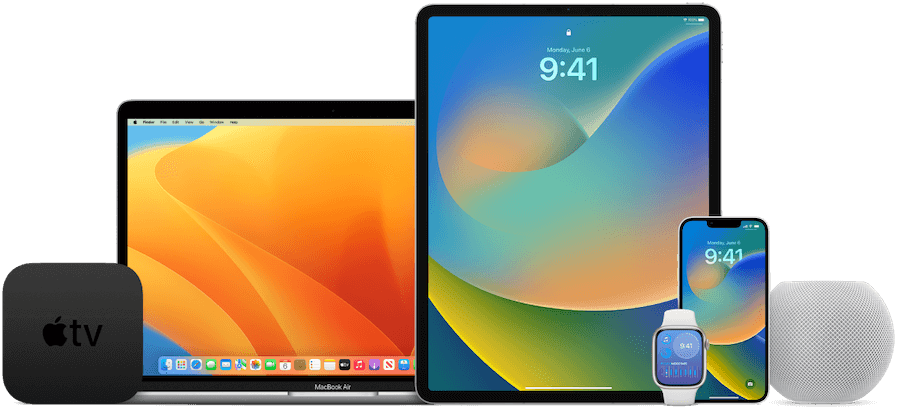
Apple is a textbook example of a strong brand. They’re the first example Simon Sinek brings up in his Golden Circle framework, asking first why, then how and what.
Apple builds beautiful, innovative computers that are different from anything else in the market. Their message highlights the same qualities in their consumers in their products: if you are an Apple person, you are also innovative, imaginative, and creative.
Despite not having a formal mission statement, Apple's ethos is intrinsically woven into its products, advocating creativity, innovation, and excellence. This implicit positioning captivates those who seek to differentiate themselves from the crowd, establishing a loyal user base that perceives Apple products as a status symbol.
Like Tesla, Apple leaves price out of branding, instead focusing on luxury, innovation, and performance.
How to Apply Apple's Strategy to Your Brand:
Sometimes, actions speak louder than words. Instead of relying on explicit mission statements, embody your brand positioning in the quality and functionality of your products. Encourage customers to associate your brand with a particular lifestyle or set of values.
3. Trader Joe’s: Your Friendly Neighborhood Store
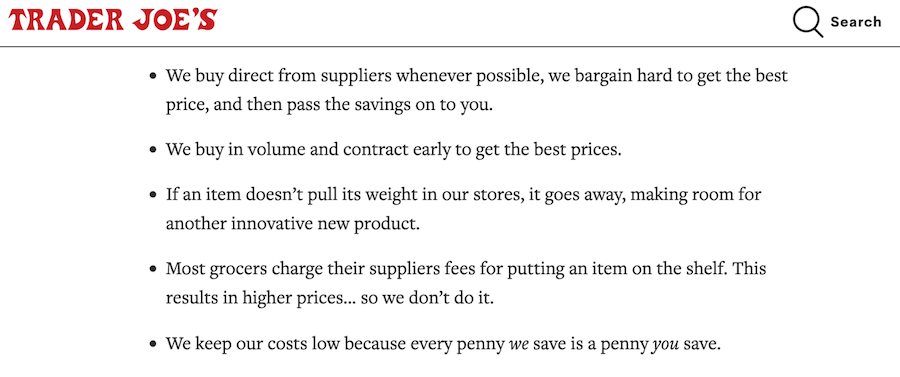
Trader Joe’s has differentiated from competitors by positioning the company as a “national chain of neighborhood grocery stores.” They offer a more tight-knit corner store shopping experience than similar premium food competitors like Whole Foods. This positioning resonates with consumers seeking a personalized, stress-free shopping experience.
The stores carry a diverse range of affordable, delicious food and work to make grocery shopping a fun experience. You can see the store's nautical theme in all brand assets: from the in-store displays and Hawaii shirt uniforms for staff to website design and messaging.
As they say on their website, "if an item doesn't pull its weight in our stores, it goes away to gangway for something else." That single sentence exemplifies their commitment to offering value through quality products at reasonable prices in a fun atmosphere.
How to Apply This Strategy to Your Brand:
Pay close attention to your customers' needs and create a brand persona that addresses them. Position your brand as the solution to your customers' problems, and ensure this positioning reflects in every aspect of your business.
4. Dollar Shave Club: Shave Time. Shave Money
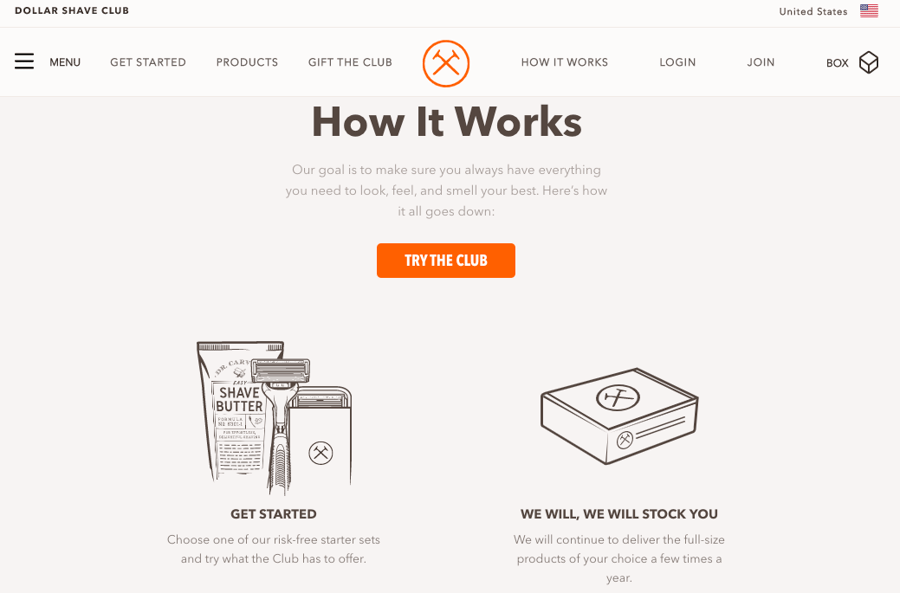
The name alone demonstrates one of the main aspects of Dollar Shave Club’s value proposition: low cost. Dollar Shave Club has focused its positioning on affordability and convenience, creating a relatable brand for the average consumer.
Whereas their competitor Gillette is more expensive and has a very masculine tone to their messaging and branding, Dollar Shave Club is more cheeky and casual. Gillette has a very sleek look and actors who look like models. Dollar Shave Club features average looking people across a wide age range who are more relatable to consumers.
Their approachable, humorous tone adds a unique touch to their branding, making it memorable.
Dollar Shave Club has disrupted the market by focusing on affordability and convenience. Their positioning strategy of featuring relatable individuals in their branding creates a refreshing, authentic, and relatable image. Their brand is cheaper, cheekier and more convenient than their competitors.
How to Apply This Strategy to Your Brand:
To mirror Dollar Shave Club's strategy, challenge industry norms and listen to what customers are saying about your competitors. Identify gaps in the market and position your brand as the best solution: Whether it's convenience, affordability, or a unique brand voice, focus on those aspects in your positioning.
5. Nike: Just Do It

Nike started their product with a focus on performance and innovation. They invented the waffle shoe and built their brand by targeting professional athletes. The Nike product line has now expanded, offering athletic attire and equipment that enhances performance.
Their branding and messaging focus on empowerment, from their tagline “Just Do It” to their namesake, the Greek Goddess of Victory. Their models and athletes aren’t smiling and happy, they’re doing physical activities with game faces on.
Nike’s brand is focused on the concept of innovation that helps you perform at your best every single time.
Their positioning strategy, focusing on athletic excellence and empowerment, inspires consumers to push their boundaries. This emotional resonance helps to create brand loyalty.
How to Apply Nike's Strategy to Your Brand:
Incorporate a motivational aspect into your brand positioning. This will inspire your customers and create a deep emotional bond with your brand.
6. HubSpot: Helping Millions Grow Better

HubSpot CRM coined the term “inbound marketing,” a customer-centric methodology that builds a strong brand and evangelizes customers.
HubSpot's platform was initially designed to help companies attract website visitors, convert leads, close customers, and delight promoters. Now, the extensive suite of "Hubs" offers advanced tools and capabilities for enterprise-level sales, marketing, and services needs.
They focus the brand around helping companies grow better, which sets them apart from other software companies that just sell a SaaS or tech product. HubSpot offers an evergreen brand promise that will always be relevant: we help you grow better.
How to Apply HubSpot's Strategy to Your Brand:
Ensure your brand promise provides value to the customer. This customer-centric approach will differentiate your brand and foster customer loyalty.
7. Drift: Never Miss a Lead Again
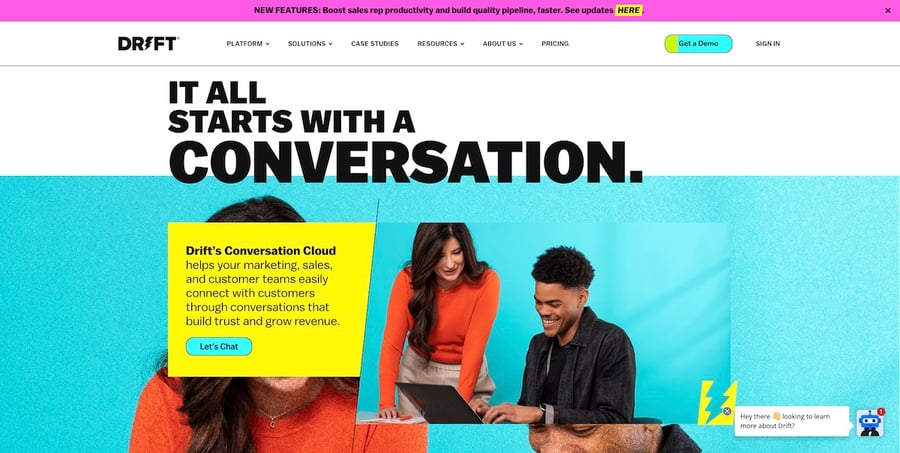
Drift pioneered "Conversational Marketing" and built a tool focusing on a different aspect of marketing than every other technology entering the market.
Unlike other tools entering the space that promote automation, Drift focuses on the human-to-human interactions of sales. People buy from other people, and Drift's brand is built on the belief that human interaction is essential to sales today. This is refreshing and appeals to businesses tired of impersonal interactions.
They even wrote a book about their ideology entitled “This Won’t Scale,” and showed how they achieved success by prioritizing people over efficiency. As a brand, Drift is trying to redefine the B2B buying experience by making it more human and personalized.
How to Apply Drift's Strategy to Your Brand:
Think about how you can "refresh" the norms in your industry. Consider what truly matters to your customers. What unfortunate truth has saturated the general market experience? If they value personal connections, position your brand as the one that prioritizes genuine relationships over impersonal transactions.
8. Starbucks: One Person, One Cup, and One Neighborhood at a Time
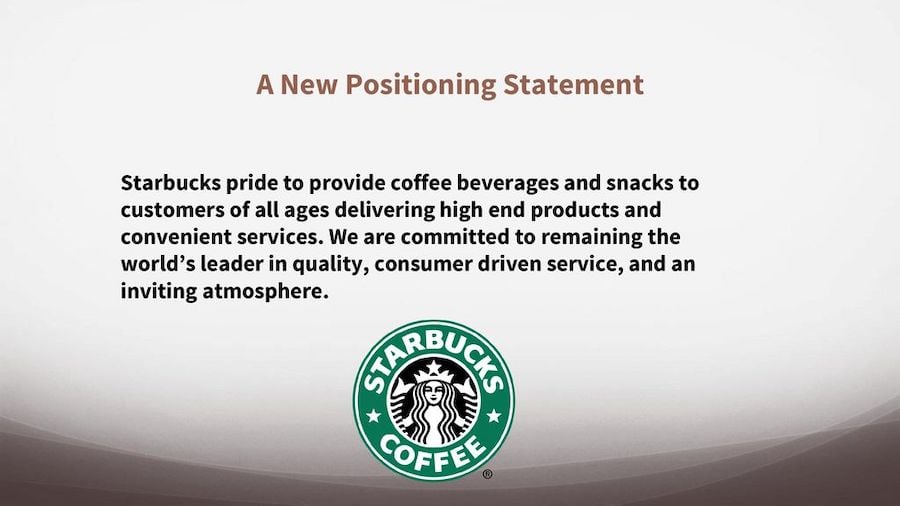
Starbucks is the largest coffee chain in the world, and they've built a brand around a few key pillars. One is convenience — you can find a Starbucks on nearly every corner. They also offer a wide range of high-quality menu items beyond coffee so that there's something for everyone. And finally, they focus on the experience, creating a warm and inviting atmosphere in their stores.
Starbucks is synonymous with coffee, and they've built a brand associated with quality, convenience, and experience. They have a very loyal customer base and often benefit from going viral on platforms like TikTok as their audience experiments with drink orders.
How to Apply Starbucks Strategy to Your Brand:
Consistency is key. Whether it's the quality of your products or the experience you provide, ensure that your customers can always rely on your brand to deliver.
9. Airbnb: Your World is Worth Sharing
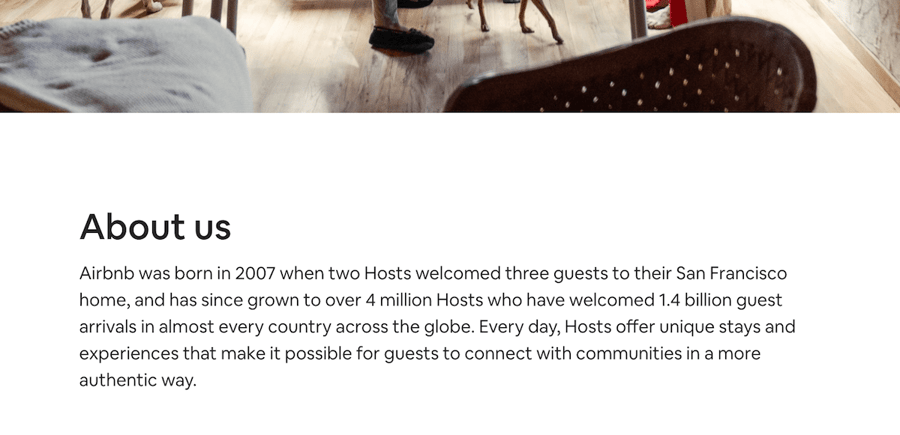
Airbnb is an online marketplace that allows people to list, find, and rent vacation homes.
They've built a brand around the idea of providing unique travel experiences. You can find an Airbnb in almost every country, and each one offers a unique experience. They focus on the personal touch and Local Guides who can show you around their city like a friend. This appeals to travelers looking for accommodations that offer more than just a place to sleep.
AirBnB's brand provides unique travel experiences you can't find anywhere else. Their focus on local experiences and personal connection sets them apart from other travel-based brands.
How to Apply Airbnb's Strategy to Your Brand:
Aim to deliver experiences, not just products or services. Understand the deeper needs and desires of your customers and position your brand as the solution. Create an authentic and personal connection with your customers that sets your brand apart.
10. Southwest Airlines: Low Fares. Nothing to Hide.
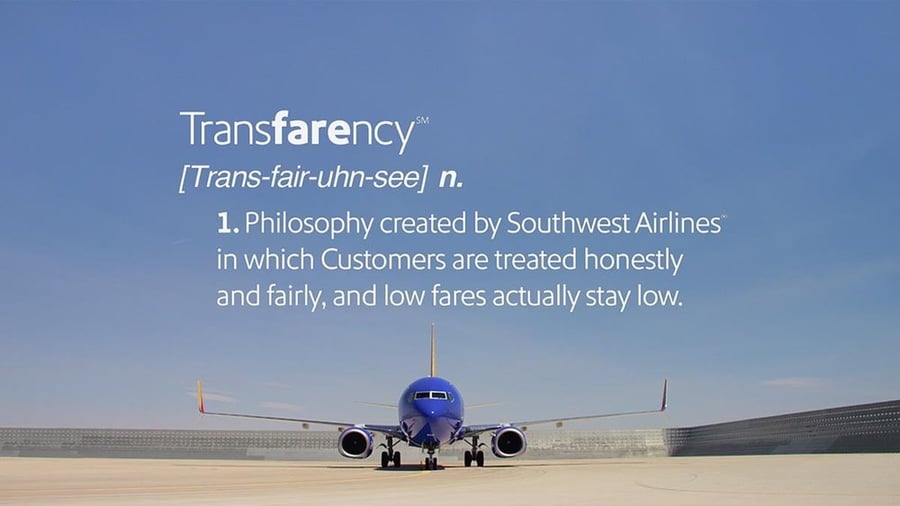
Southwest Airlines is a low-cost carrier that offers flights throughout the US. Known to travelers as the "friendly airline," Southwest states that its purpose is to "Connect People to what's important in their lives through friendly, reliable, and low-cost air travel."
Southwest's brand is about being a budget-friendly airline without sacrificing quality or customer service. Their focus on their people — both employees and customers — has helped them build a strong brand that is synonymous with good vibes and cheap flights.
How to Apply This Strategy to Your Brand:
Offer excellent value without sacrificing quality. Emphasize your brand's character and commitment to customer satisfaction, making your consumers feel valued and part of your brand's community.
11. Chipotle: Food with Integrity
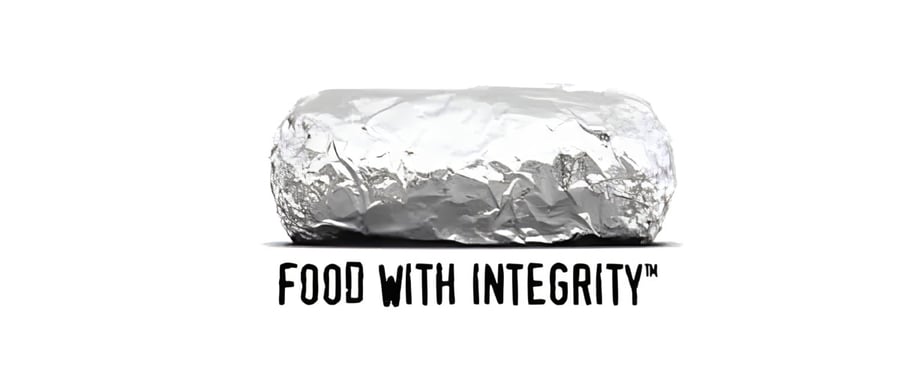
Chipotle is a fast-casual restaurant chain focused on Mexican-inspired cuisine. Customers associate the brand with healthy, flavorful food: They're known for offering a wide variety of menu items, customizable to each customer's liking. Chipotle is strongly committed to sustainability, sourcing ingredients from local and sustainable farmers.
Chipotle sets itself apart from other fast-food chains by focusing on freshness, sustainability, and customizability. This positioning appeals to consumers who seek nutritious fast food and are conscious of where their food comes from.
How to Apply This Strategy to Your Brand:
What's important to your customers beyond the core product or service you provide? For Chipotle, it was healthy ingredients and sustainable practices. Use this insight to shape your brand positioning.
12. Patagonia: Build the Best Product, Cause No Unnecessary Harm
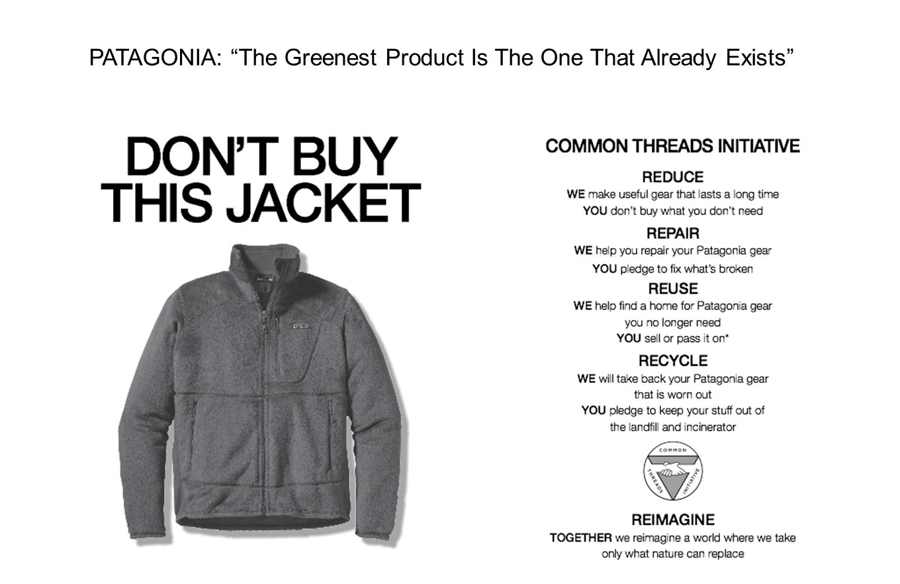
Patagonia is an outdoor apparel company focused on selling clothing and gear for activities like hiking, camping, and surfing. Customers associate the brand with high-quality, sustainable products.
Patagonia has built its brand around environmental stewardship and social responsibility. They use sustainable materials and practices for their products and donate 1% of sales to environmental causes. Patagonia also focuses on social responsibility, ensuring fair treatment and livable wages to all workers.
Patagonia's positioning as an environmentally conscious brand not only differentiates it in the marketplace but also resonates with the growing number of consumers concerned about environmental sustainability.
How to Apply Patagonia's Strategy to Your Brand:
Your brand positioning should reflect your core beliefs and values. If your brand stands for a cause, incorporate it into your brand positioning and communicate it clearly to your target audience.
13. Aflac: We've Got You Under Our Wing
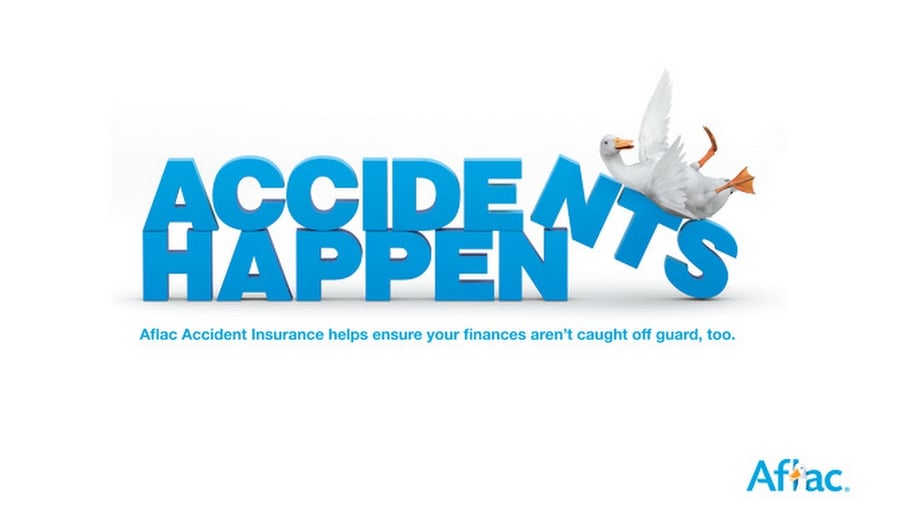
Aflac is a supplemental insurance company offering coverage that goes beyond what's offered by traditional health insurance plans. Customers instantly recognize the brand when Aflac's duck mascot appears in view.
Aflac's brand focuses on providing customers with peace of mind. Their emphasis on customer service and unique, humor-filled marketing campaigns have helped them build a strong brand synonymous with supplemental insurance. Aflac also promotes a culture of giving back and donates a portion of profits to charitable causes.
Their unique combination of reliable insurance coverage and humorous, memorable marketing campaigns sets it apart in an industry often perceived as dull. This makes the brand more relatable and approachable.
How to Apply Aflac's Strategy to Your Brand:
Do not shy away from adding personality to your brand. Even if your industry is traditionally serious, consider using humor or other emotional appeals to connect with your audience.
14. Ben & Jerry's: Peace, Love, and Ice Cream
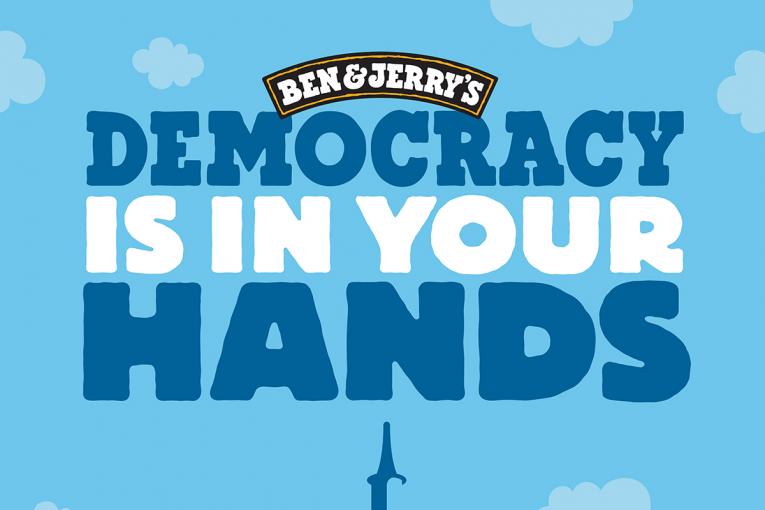
Originally founded close to New Breed's headquarters in Burlington, VT, Ben & Jerry's is an ice cream brand known for creative flavor names and fun packaging. They're also a values-driven company, sourcing Fairtrade ingredients and advocating for social and environmental justice.
Ben & Jerry's has built its brand around creative flavors, fun packaging, and a commitment to social and environmental justice. This positioning appeals to consumers who not only enjoy delicious ice cream but also care about the company's values and impact.
How to Apply This Strategy to Your Brand:
Find a cause that aligns with your brand and incorporate it into your brand positioning. Today's consumers are more likely to support companies whose values align with their own. By taking a stance on significant issues, you can strengthen your relationship with your target audience and enhance your brand reputation.
The Takeaway
From Tesla's vision of a sustainable future to Dollar Shave Club's commitment to affordability and convenience, brand positioning is an integral part of any company's marketing strategy. Each company we've highlighted built a brand on a unique idea or value proposition that continues to delight target audiences over time. And there's a reason why.
To create strong brand positioning, consider what makes your company's story different from everyone else. What are your fundamental values? What experiences can you offer that customers can't find anywhere else? Focusing on these items will help you build a brand that stands out in the marketplace, no matter how crowded.
However, a robust brand positioning strategy doesn't end with your mission statement or tagline. It extends to every facet of your business, including your digital presence, most notably your website.
Make sure your site is ready to work harder for your brand. From initial strategic planning to the final site launch, our comprehensive guide arms you with the knowledge and insights needed to create a website that doesn't just look good but is also strategically structured to drive conversions. Grab your guide now and gear up to unveil a website that truly mirrors your brand and propels your growth.
Guido Bartolacci
Guido is Head of Product and Growth Strategy for New Breed. He specializes in running in-depth demand generation programs internally while assisting account managers in running them for our clients.





